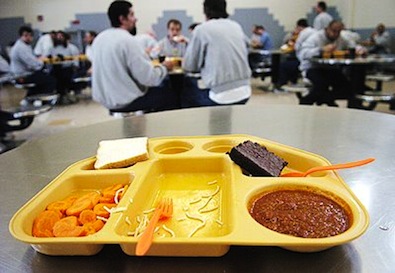With a sizable Jewish clientele, Josh Charlip knew it would make sense for his bagel store in Southfield to become kosher. But being certified by the Orthodox “Vaad” would have made it a challenge at an affordable cost, he said. So Charlip decided instead to seek certification from Kosher Michigan, a new agency started by Conservative Rabbi Jason Miller that has certified 19 businesses as kosher so far. Charlip, who is Jewish, says that while an observant Orthodox customer might not be convinced to nosh on a bagel from his store, his certification opened the doors to more customers.
Miller’s agency is part of a debate over who defines what is kosher; in general, Orthodox Jews are more stringent about observing Jewish law. Kosher Michigan was established at a time of growth for the kosher foods market, as non-Jews increasingly look for kosher approval on the products they buy: More than $200 billion in annual U.S. food sales come from kosher products.
While, traditionally, kosher certification was handled by Orthodox agencies, some say their interpretations have become too strict. But Orthodox leaders say they are uniquely qualified to determine what is kosher because of their expertise, experience and careful attention to God’s laws.
Michigan adds kosher choices
Kosher food is a growing industry, with about 40% of the $500 billion in annual U.S. food sales now coming from food products approved under Jewish law.
From Pepsi to General Mills to Nabisco, the biggest names in the food industry have many of their products certified as kosher to reach not only Jews, but others with discerning tastes. Even Tootsie Rolls are kosher, having earned Orthodox certification in late 2009.
But who determines what is kosher?
That question is being debated as some in the Conservative movement of Judaism are starting to establish kosher-certifying agencies that compete with those of the more-traditional Orthodox, who have long maintained kosher standards for Jews. Conservative Rabbi Jason Miller of Farmington Hills started Kosher Michigan in 2008 and now certifies 19 businesses or products as kosher, including bagel factories, grocery stores and chocolatiers in metro Detroit. Other states, such as Minnesota, New Jersey and Connecticut, have seen similar efforts by Conservative rabbis.
You don’t have to be Jewish
Kosher certification is increasingly important to many businesses whose owners are not of the Jewish faith because many consumers equate kosher with higher quality.
When Sally Burrell would attend trade shows promoting olive oils and spices from her Lapeer company, she said she would often get asked: Are your products kosher?
“If you say no, they walk away, ” she said.
That prompted her company, Lesley Elizabeth, to seek out kosher certification, but the Orthodox standards made it “pretty cost prohibitive for a small company” said Burrell, the CEO.
So she approached Kosher Michigan last year.
“My goal is to increase the options available for the kosher consumer, ” Miller said.
He and other Conservative rabbis say that in recent years Orthodox Jews have become more strict about defining what exactly is kosher. For example, fresh broccoli and strawberries are now out at many kosher events certified by Orthodox agencies because of concerns about insects. Some say that goes too far. But Orthodox leaders say they’re the ones qualified to determine what is kosher.
Rabbi Doniel Neustadt, head of the Council of Orthodox Rabbis of Greater Detroit (known as the Vaad), said the agency “follows the strictest kashruth standards in the industry, based on Torah and rabbinic tradition dating back thousands of years.”
“Proper kosher supervision is a complex task that can be assumed only by experienced professionals who have spent many years studying the field of kashruth, ” Jewish food laws, he said.
Growth comes from non-Jews
The debate comes at a time of explosive growth in the kosher food industry, according to market research company Mintel. One-third to one-half of the food for sale in an average U.S. supermarket is kosher, says Sue Fishkoff in her new book “Kosher Nation” (Schocken, $27.95). That upswing led to an increase in the number of kosher certification agencies – there are almost 1,000 kosher agencies in the U.S. now, up from just 18 in 1981, according to Kashrus Magazine.
Overall, annual sales of kosher products are $200 billion, with 86% of customers who buy kosher products not observant Jews. Most Jews do not keep kosher; only 21% of them follow the dietary rules, according to the most recent National Jewish Population Survey.
Michael Weil, 47, of West Bloomfield, who is Jewish, said he is looking for more options to keep kosher and so he likes Miller’s Kosher Michigan. While shopping at Johnny Pomodoro’s Fresh Market – certified as kosher last year by Kosher Michigan – Weil said: “The fact that there are more options makes it more convenient.”
Different standards
Miller gives an example of the differing standards between his agency and Orthodox certification.
If a store or bakery is run by a Jew who is not observant, Miller said, some Orthodox agencies won’t certify the establishment unless the owner gives his key to an Orthodox supervisor. The reasoning? If a Jewish person can’t observe Jewish laws such as resting on the Sabbath, how can that person be trusted to keep a kosher establishment?
Miller said such a restriction is not needed to make a place kosher.
“What he does in his private life has nothing to do with whether his challah (egg bread) is kosher, ” Miller said.
Neustadt disagrees that Orthodox standards have become tougher.
“Orthodox standards for kosher have not become more stringent, although it may be argued that the existing rules and regulations, which have been around for thousands of years, are being more aggressively enforced and there is a greater awareness of them, ” he said.
Still, Karen Rosenberg, 42, of West Bloomfield said Miller’s Kosher Michigan effort is the perfect fit for her family.
The mother of four said she didn’t observe kosher dietary rules growing up, but as she became more in touch with her Jewish identity as an adult, she started looking for affordable, kosher choices.
“He’s opened up a whole new door for my family, ” Rosenberg said of Miller. “It’s made it easier to go and get the products of good quality and at a good price…. It’s a very good thing for the Jewish community.”
Contact Niraj Warikoo: 313-223-4792 or nwarikoo@freepress.com







